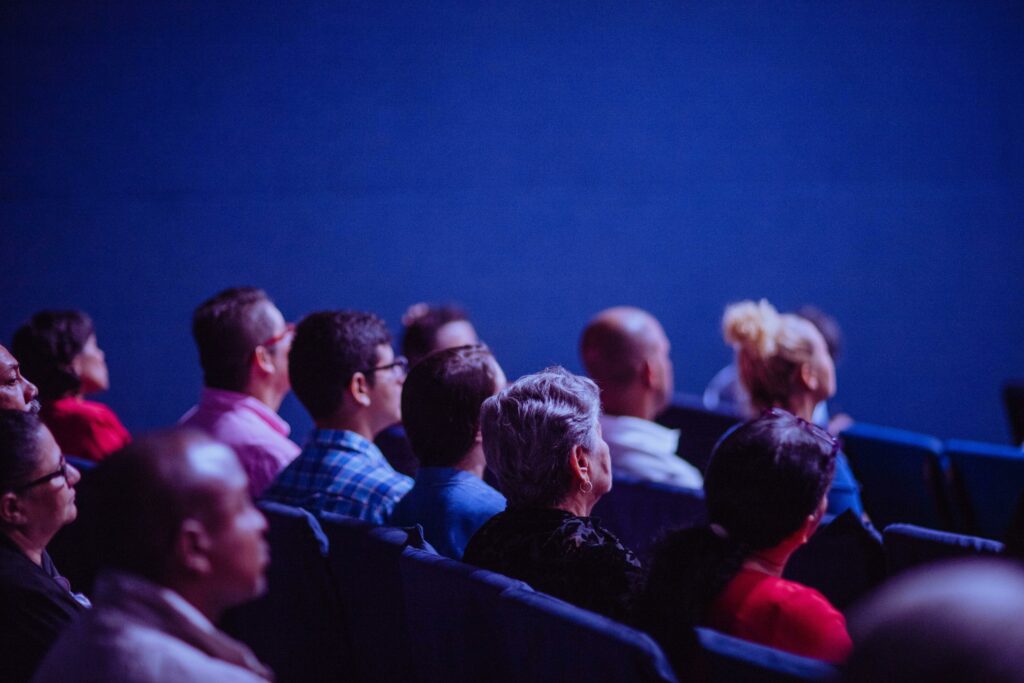Hybrid comes in many forms
Even though people craved in-person events, hybrid events started popping up too. Our experts used hybrid events as a formula that combines online and offline tools to reach their business event objectives. Let’s go through some ways they used.
Of course, some hybrid events ’simply’ streamed the in-person event for an online audience. Marketers that ran such hybrid events used professional teams to help them build the scenario and get the technical side of things right (streaming, professional film crew…).
In some cases, our experts explained they re-used the recordings of in-person events. They uploaded the recording for guests to relive the event, or used them on their website as a lead magnet.
Another alternative our interviewees discussed was an online event, followed by different groups in the same room spread geographically. One group would follow the webinar in Brussels, one in Amsterdam, one in London, etc. This way, they could share the moment with the entire audience globally AND have some in-person networking opportunities locally.
And of course, there are online events that include a physical element (sending a gift basket, beer or wine tasting). Although the audience’s reactions were positive, these events were in many cases not repeated regularly because of the cost side of things and complicated logistics.
”We wanted to celebrate certain employees during our online company conference. To give them their spotlight moment, we sent a small film crew to their house and some of the others we gathered on location so they still could receive their award on stage in a safe environment. The award winners really appreciated this effort.”
– Kathy De Weirt, Marketing Manager, BOEMM



